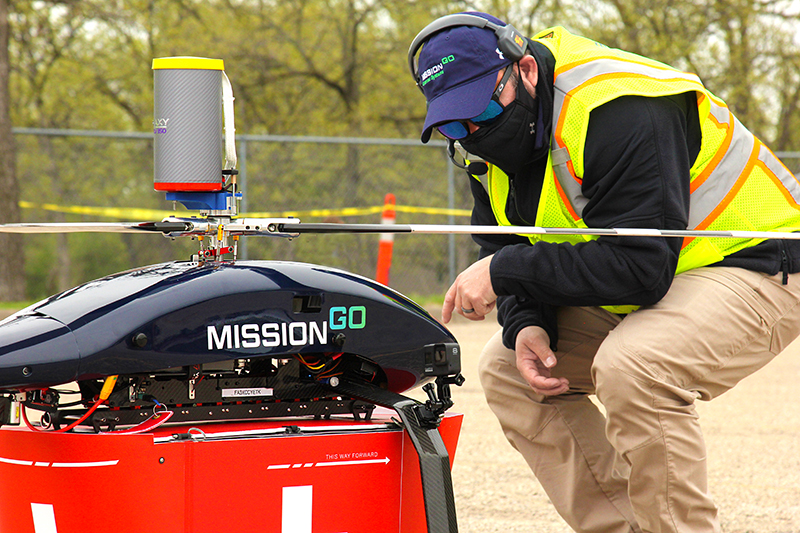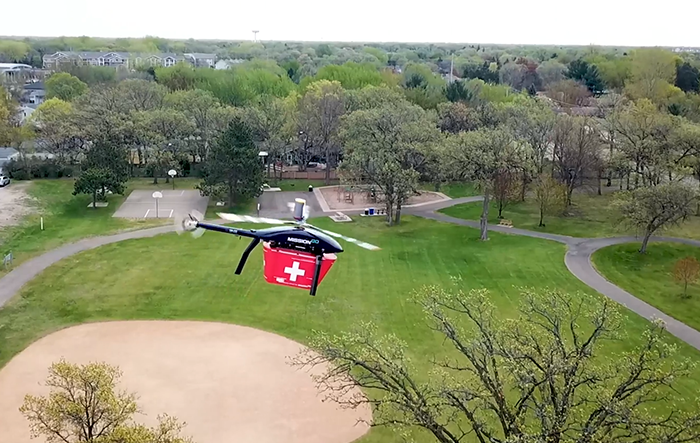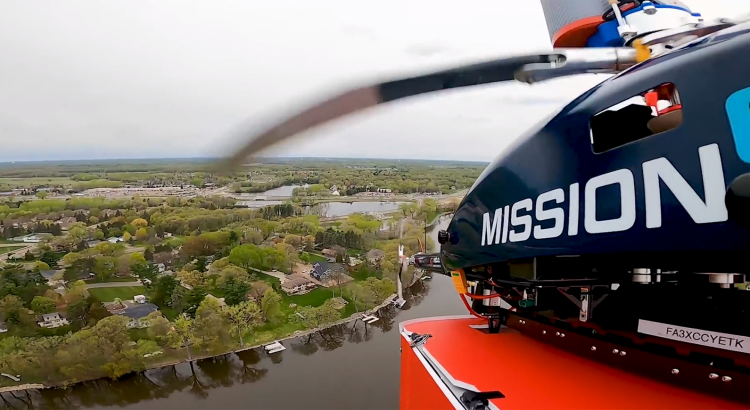MissionGO, LifeSource and Mercy Hospital, part of the Allina Health system, have announced the first-ever test flight carrying a human pancreas via an Unmanned Aircraft System (UAS) conducted on May 5.

Following a moment of silence led by Lead Pilot Ryan Henderson to honor the donor hero, this historic flight transported a research pancreas from Mercy Hospital in Coon Rapids, flew a 10-mile circuit over the Mississippi River, then returned to Mercy Hospital. This flight successfully demonstrated the viability, value, efficiency gains and delivery speed of lifesaving organs via UAS within the Twin Cities metro area.
The pancreas was also monitored for the entire flight, using MediGO’s hardware and software platform to provide the real-time location status of the organ to all critical stakeholders. A biopsy was performed by LifeSource on the pancreas before and after the flight to study the impact of UAS transportation on a human organ, revealing no changes in pre and post flight biopsies. In addition to the organ payload being tracked with MediGO, MissionGO’s aircraft was monitored with AlarisPro’s new flight data recorder known as the AlarisAIR (Automated Independent Recorder) which provides flight telemetry data through both cellular and Bluetooth networks.
“LifeSource has set an audacious goal of transplanting 1,000 organs in one year by 2027; last year, we facilitated 603 transplants,” said Susan Gunderson, LifeSource Founder & CEO. “Organ transplant is a race against time; this is one of many transformative solutions to help us save more lives.”

This organ flight builds on three other tests conducted using an unmanned aircraft in 2019 and 2020. In April 2019, as part of a University of Maryland research project, MissionGO’s Ryan Henderson piloted the delivery of the first kidney by UAS that was then successfully transplanted into a patient. Then in September 2020, MissionGO partnered with the Nevada Donor Network OPO to complete two test flights transporting research corneas and a research kidney. This inaugural pancreas flight helped evaluate the use of UAS specifically in the Midwest region. With recent changes to FAA regulations and MissionGO’s progress certifying their MG Velos 100 UAS, the team is well positioned to integrate UAS organ delivery for LifeSource and Allina Health soon, both from donor to transplant hospital and to Minneapolis-St. Paul (MSP) International Airport for transport to other parts of the country.
“The future is here – there’s a demand in the market for innovative and sustainable solutions in the commercial and medical industry. MissionGO is here to prove that unmanned aircraft are a reliable mode of transportation for precious cargo,” said Frank Paskiewicz, MissionGO Executive Vice President for UAS Cargo Operations. “LifeSource and Allina Health have been incredible partners that are pioneering new solutions for the organ transplant industry.”
“Organ transport by an unmanned aircraft is an incredible innovation for health care,” said Robert Quickel, MD, vice president clinical service line, surgical procedural administration for Allina Health. “These test flights are an inspiring step in overcoming obstacles and increasing the number of viable, life-saving organs that our transplant patients so desperately need.”
Scott Plank, CEO and Co-Founder of MissionGO and MediGO explains, “MissionGO is focused on unmanned aircraft operations, while MediGO is dedicated to improving organ transplant and hospital logistics through just-in-time delivery. MediGO is an important part of MissionGO’s medical cargo operations and is the only company monitoring all modes of transportation for medical deliveries. Together, MissionGO and MediGO are taking organ logistics innovation into the future.”




